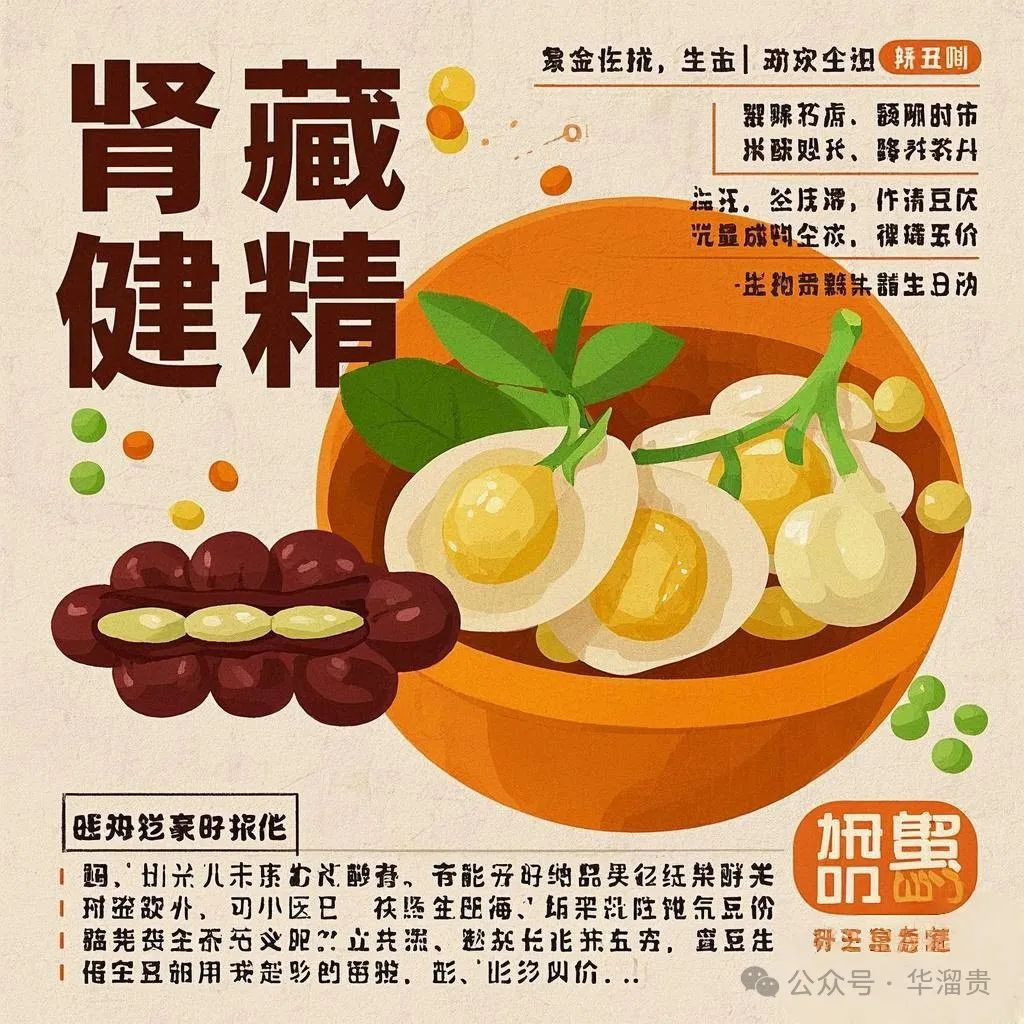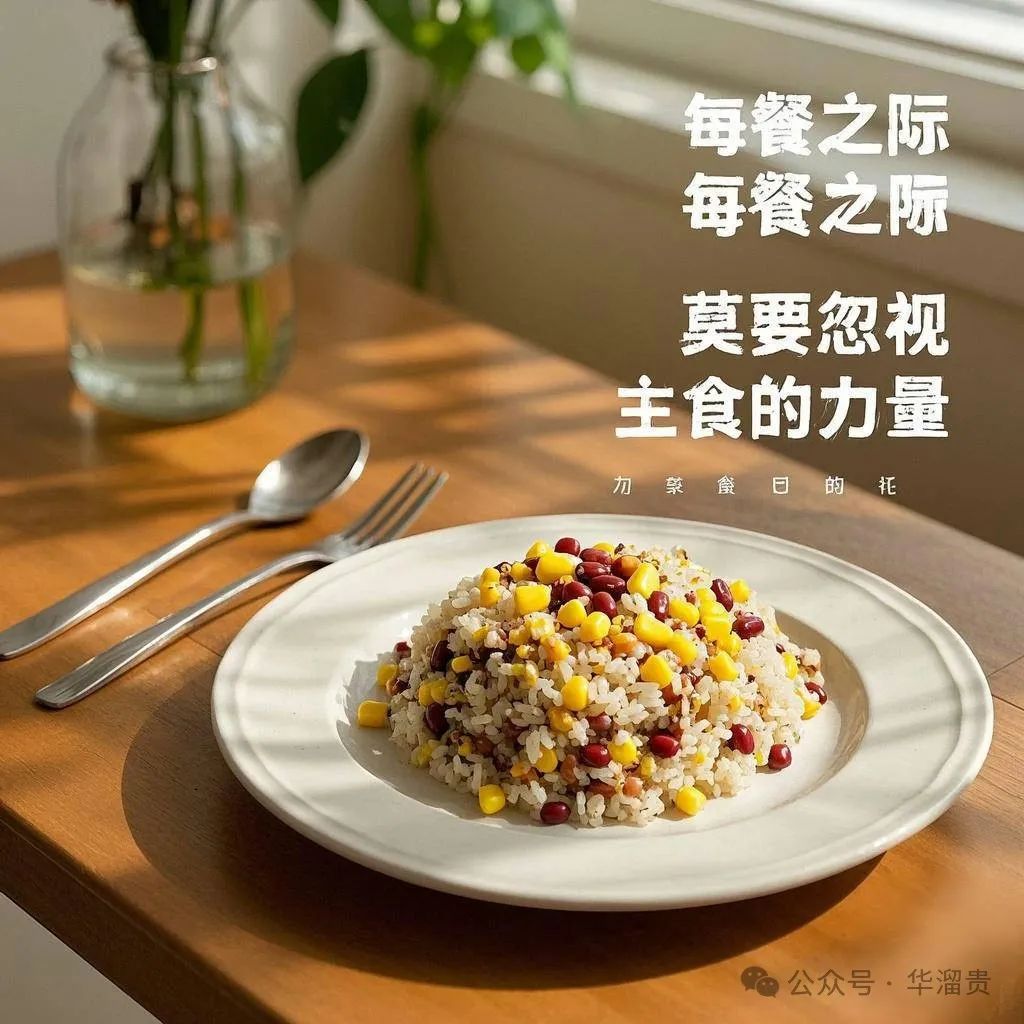Have you ever explored the true meaning of eating? In the fast-paced modern life, three meals a day often become a hurried task to fill the stomach. However, tracing back to the wisdom of ancient China, eating is far more than just satisfying hunger.
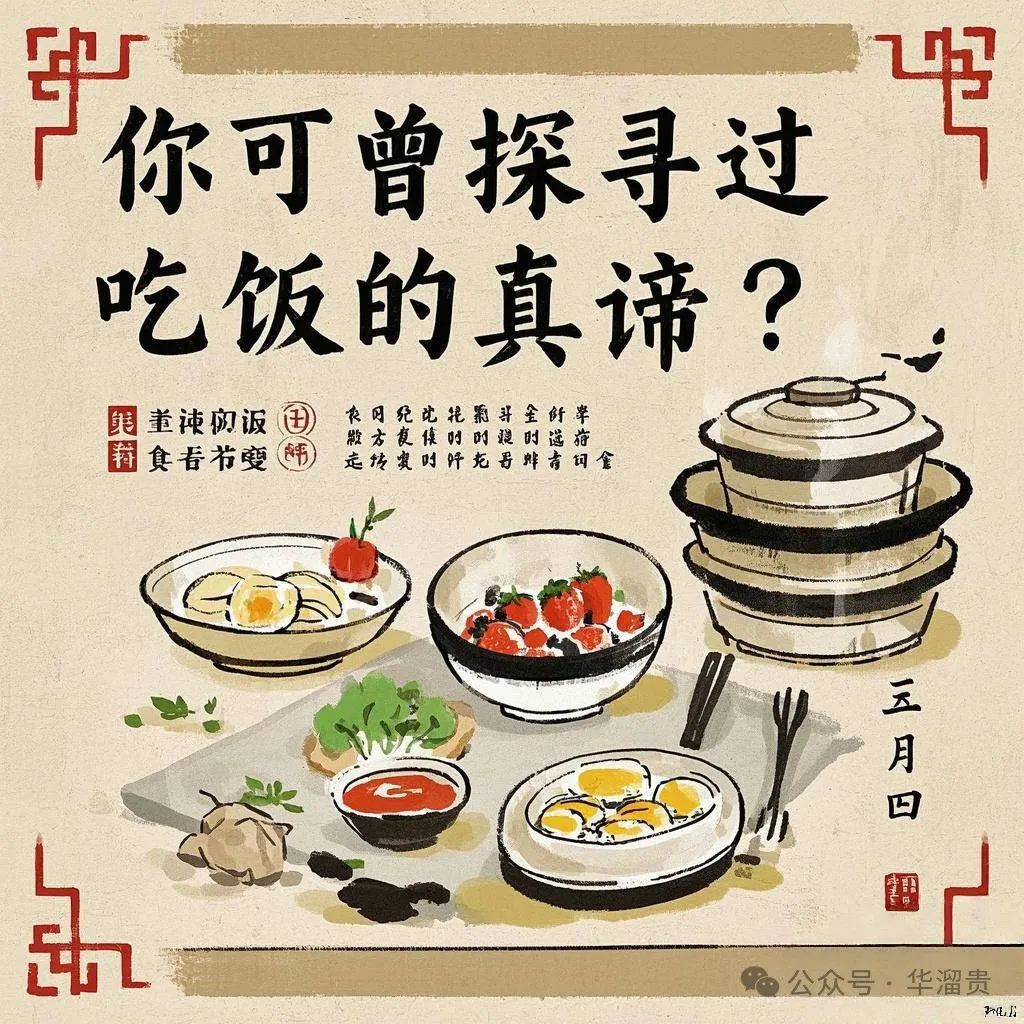 In the Huangdi Neijing (Yellow Emperor’s Inner Canon), a classic that carries the life philosophy of ancient people, it reveals a profound truth: “Grains are for nourishment.” What are grains? They are the initial gifts of life, the seeds of plants. Each seed is a treasure trove of energy, carefully refined by nature, containing vibrant life and dormant potential that can unleash great power. When they reach our dining table and enter our mouths, a marvelous transformation quietly begins. The body acts like a wise alchemist, using a sophisticated system to refine the essence of grains into vital energy that nourishes the entire being. This transformation consumes little energy but yields abundant rewards, akin to planting a seed of health within the body, allowing it to thrive endlessly.
In the Huangdi Neijing (Yellow Emperor’s Inner Canon), a classic that carries the life philosophy of ancient people, it reveals a profound truth: “Grains are for nourishment.” What are grains? They are the initial gifts of life, the seeds of plants. Each seed is a treasure trove of energy, carefully refined by nature, containing vibrant life and dormant potential that can unleash great power. When they reach our dining table and enter our mouths, a marvelous transformation quietly begins. The body acts like a wise alchemist, using a sophisticated system to refine the essence of grains into vital energy that nourishes the entire being. This transformation consumes little energy but yields abundant rewards, akin to planting a seed of health within the body, allowing it to thrive endlessly.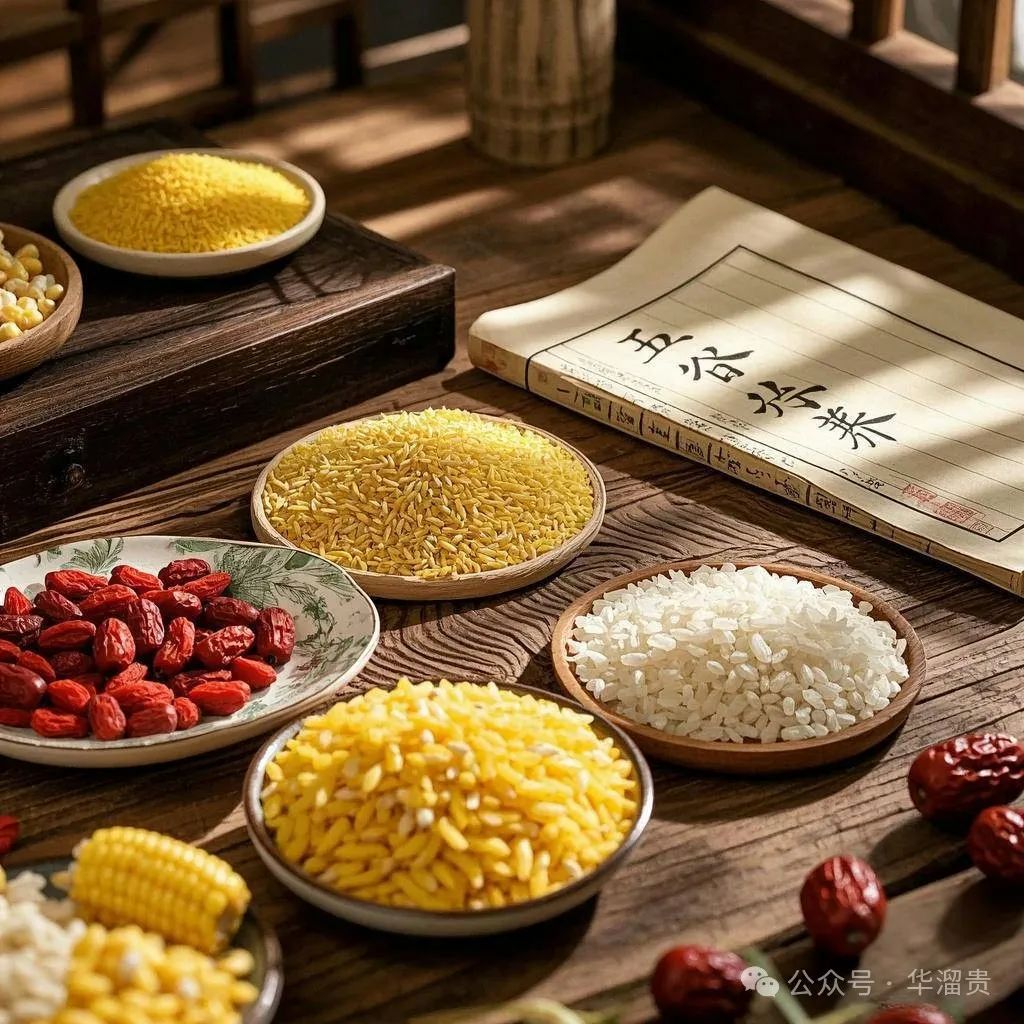 Grains also have a remarkable nourishing relationship with the organs of the human body. The liver, which governs the smooth flow of qi and stores blood, can lead to fatigue and low mood if liver qi is insufficient. At this time, wheat (mài zi) becomes the best tonic. Wheat, a whole grain, enters the liver meridian, and its rich nutrients nourish the liver like spring rain moistening the earth, restoring the liver’s ability to flow freely and revitalizing one’s energy.
Grains also have a remarkable nourishing relationship with the organs of the human body. The liver, which governs the smooth flow of qi and stores blood, can lead to fatigue and low mood if liver qi is insufficient. At this time, wheat (mài zi) becomes the best tonic. Wheat, a whole grain, enters the liver meridian, and its rich nutrients nourish the liver like spring rain moistening the earth, restoring the liver’s ability to flow freely and revitalizing one’s energy.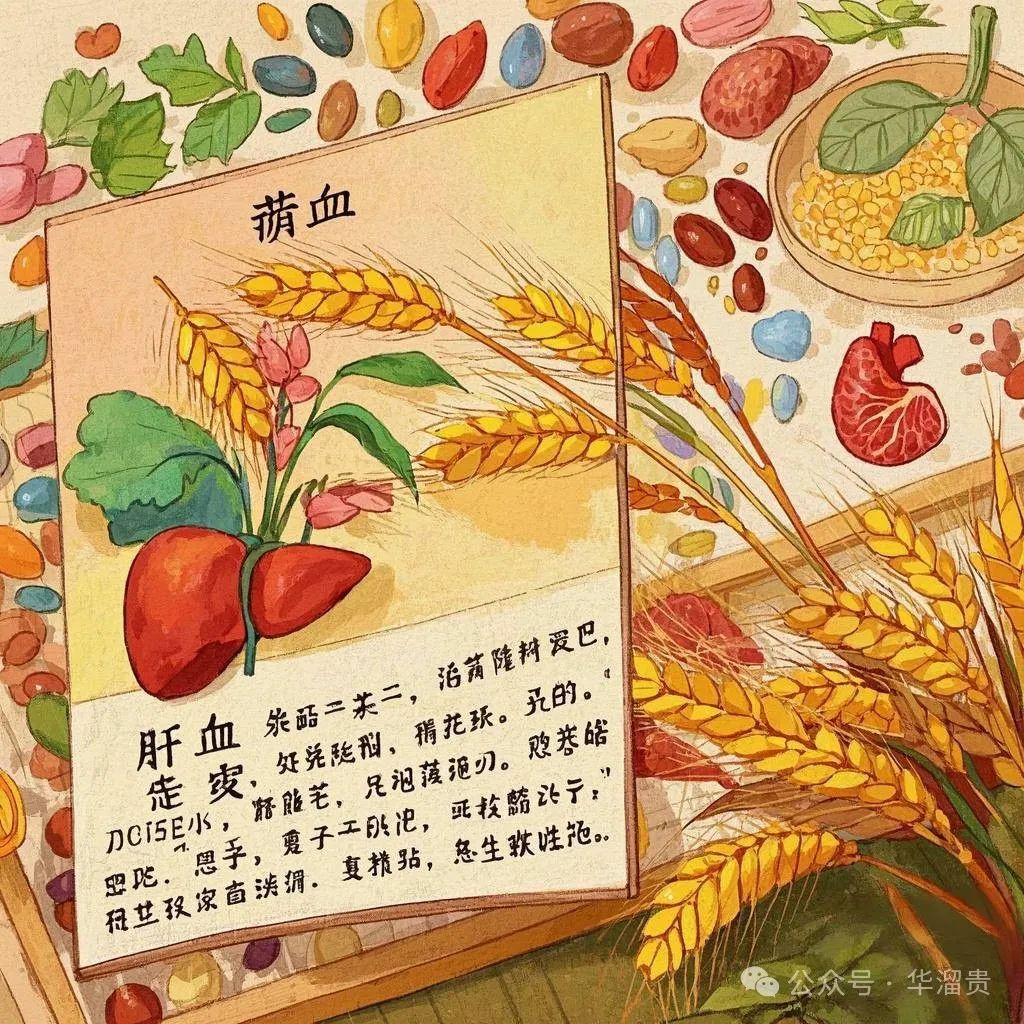
The heart governs the blood vessels and houses the spirit. When heart qi is deficient, symptoms such as palpitations and insomnia may follow. Sorghum (gāoliang), which is warm in nature and enters the heart, acts like the warm sun in winter. Its rich carbohydrates can quickly “recharge” the heart, providing the energy needed for its continuous beating, calming the spirit, and promoting deeper sleep, alleviating palpitations.
The spleen is the foundation of postnatal life and the source of qi and blood production. If the spleen and stomach are weak, digestion becomes ineffective, leading to symptoms like bloating and loose stools. Millet (xiāngyuán), the “star grain” that nourishes the stomach and strengthens the spleen, comes into play. Its gentle texture is easy to digest, effortlessly nourishing the spleen and stomach, day after day, injecting continuous energy into the spleen, enhancing digestive absorption, and improving complexion. The lungs govern respiration and the skin. When lung qi is insufficient, shortness of breath, cough, and dry skin become common. Rice (mǐ), especially japonica rice, enters the lung meridian, replenishing lung qi and generating fluids. The soft and glutinous rice porridge it produces is like jade dew nourishing the skin, benefiting the lungs and restoring the skin’s luster, allowing for smooth and refreshing breathing.
The lungs govern respiration and the skin. When lung qi is insufficient, shortness of breath, cough, and dry skin become common. Rice (mǐ), especially japonica rice, enters the lung meridian, replenishing lung qi and generating fluids. The soft and glutinous rice porridge it produces is like jade dew nourishing the skin, benefiting the lungs and restoring the skin’s luster, allowing for smooth and refreshing breathing.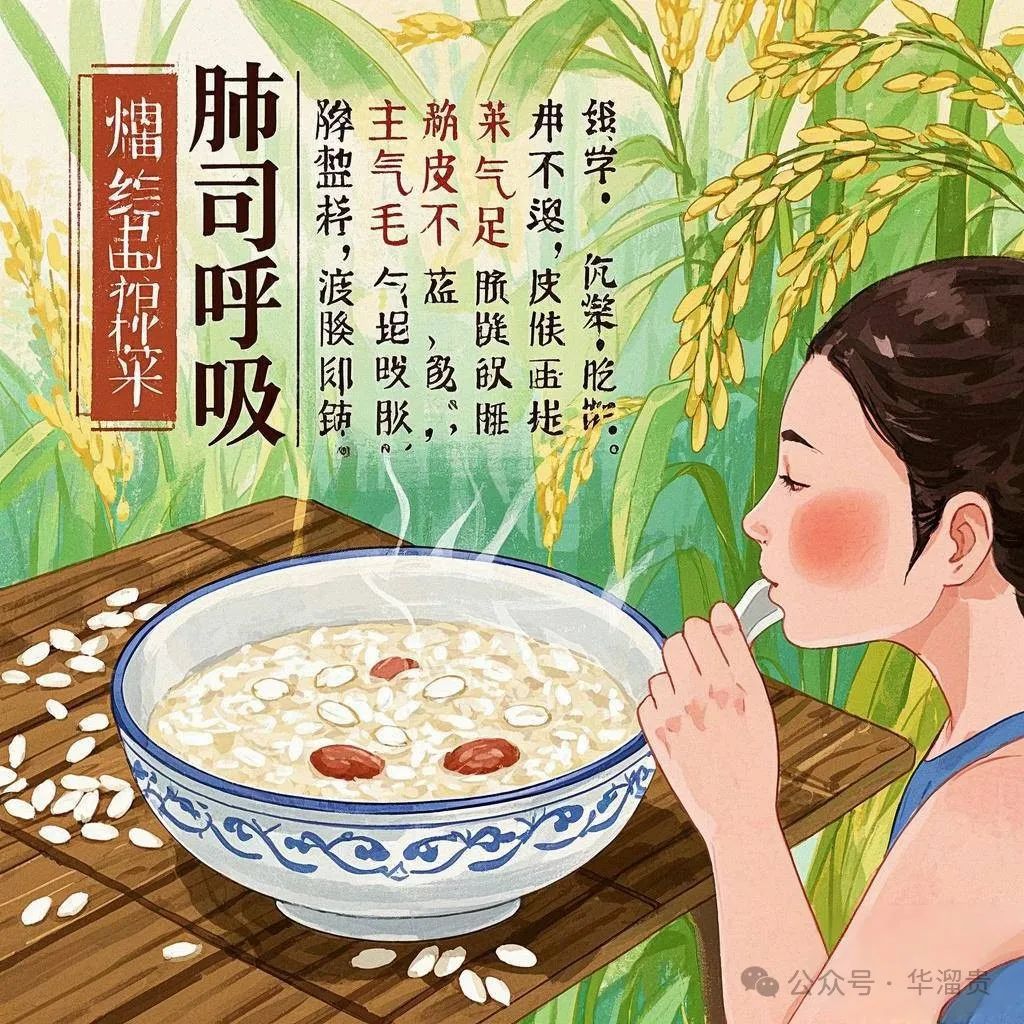
The kidneys store essence and govern growth, development, and reproduction. If kidney qi is deficient, symptoms like lower back pain and lack of energy may arise. Soybeans (dòu), rich in plant protein, take on the important role of strengthening the kidneys, benefiting kidney essence, and laying a solid foundation for vitality, allowing one to walk lightly and gradually increase endurance, radiating energy from within.

